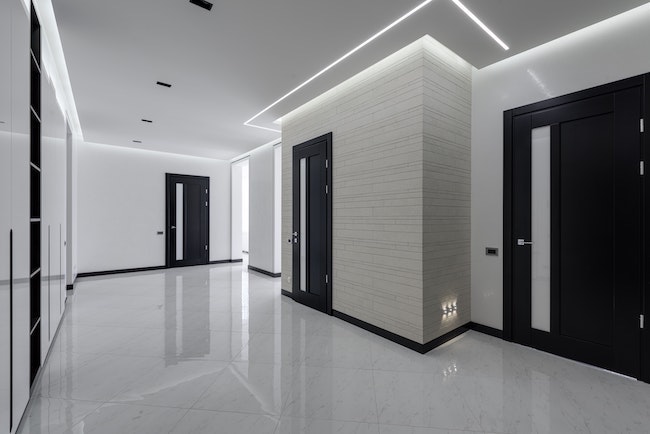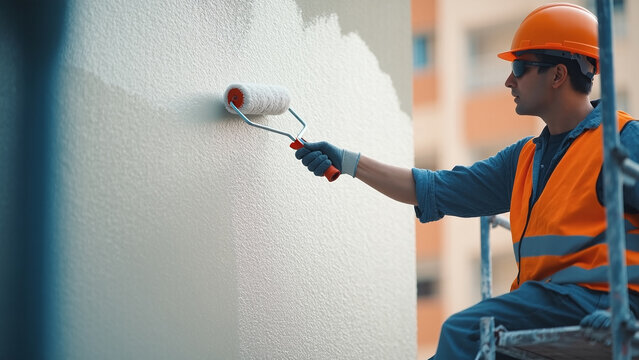Paul Fenech talks comedy, cancel culture and corrupt councils
The Australian TV veteran has seen a lot of change over 20 years in the industry.

Contributors
Breaking News
Whether you see it as a good or bad thing, or even something that simply doesn’t exist, the idea of ‘cancel culture’ refuses to go away.
Everyone has an opinion on the popular term, from those bemoaning that ‘you can’t say anything anymore’, to those who believe that’s a good thing. Even the Prime Minister has weighed in after being asked about the issue following the passing of Australian comedy legend Barry Humphries:
“We’ve got to be able to laugh at ourselves... The idea of cancel culture, is, in my view, a sad development because you often can get as well, pile-ons on social media.” - Anthony Albanese
One man who regularly treads the fine line is Pauly Fenech, the director, writer and actor behind decades of Australian television, with a string of cult-hit shows like ‘Fat Pizza’, ‘Housos’ and ‘Swift N Shift Couriers’, ‘Bogan Hunters’ as well as a number of feature films and Tropfest awards. He's also worked with a number of Australian entertainment legends including Ian Turpie, Amanda Keller and Kamahl.
To those unfamiliar with Fenech's tone and style, he might seem ripe for criticism or objection. Not afraid of taking on confronting social elements, he’s been branded a misogynist and accused of racism and cultural insensitivity in the past - while also being on the receiving end.
Fenech will return to our TV screens in 2023 with his new series, ‘Darradong Local Council’, later this year, skewering the unique world of Australian local government as only he knows how.
It’s safe to say it probably won’t be like ‘Parks and Recreation’.
“It’s all about the corruption, lazy council workers, the stuff you see in the news all the time,” Fenech tells Real Sydney.
“A lot of it is straight out of the headlines. Councils are an easy source of material because you can’t believe some of the stuff they’ve actually done.”
Fenech cites former Auburn Deputy Mayor Salim Mehajer as the perfect example of the self-interest and corruption in the lower tiers of Australian government.

“You had him closing a park and landing a helicopter (for his wedding) and thinking there wouldn’t be scrutiny. It gives you an indication of the craziness.”
But while Mehajer’s ‘cancellation’ came about due to illegal activity that ultimately saw him sent to prison and the entire Auburn council dissolved, the entertainment industry is less black-and-white when it comes to controversy.
The state of entertainment
Though some of his jokes may come off as crude, Fenech has also won a Logie for his most controversial show, demonstrating the subjective and unpredictable nature of comedy and the industry as a whole.
“Most of the people who make TV and movies in this country now are scared to go out of their own area,” Fenech says.
“These kids get an easy gig and never travel (out of the cities). In this industry the majority of people who’ve been running things don’t understand the people out west because they simply won’t go there.”
That reluctance to step outside of a defined comfort zone, whether in terms of subject matter or geography, is what Fenech says has lent an air of unbelievability to much Australian TV despite the frequently stated commitment to diversity.
“What’s the point in being culturally diverse if you’ve got a bunch of people of different shades but they’re all homogenised?” he asks.
“I don’t see any media these days that has real Pacific Islander or Asian accents, it’s all still very token. It’s still a white guy writing, the actors are just reading the script.
“In the new show we’ve got a very diverse cast. We’ve got African, Maori, Italian, Latino, Lebanese, even non-binary characters.
“The only importance I place on our casting is that it looks and sounds like Australia. We don’t just hire people of different colours who sound exactly the same. Our cast actually brings some cultural nuance.”
While some rally against and complain about the advent of political correctness, Fenech is more analytical.
“I’ve seen four or five generations now in my time in the industry. You can see their different senses of humour - most older generations were brought up with British humour like Monty Python, but for the last 10-15 years it’s been all American,” he says.
“We’ve imported a lot of (American) culture as well, and look at the place - it’s a disaster! Is that really the way we want to go? They can’t laugh at themselves like Australians can.”
“The Australian sense of humour used to be more broad and rude, a little cheeky. It was about the concept of a larrikin - but there aren’t as many viewers with that older sensibility anymore. There’s no appreciation for that generation. They’re being forced to forget everything they grew up with and just accept things.”
Thanks to his extensive touring around the country, Fenech believes the current tension around comedy and entertainment is being dictated by a small but vocal suburban minority that isn’t representative of the majority of Australians.
“I do stand up everywhere in Australia. I’ve met more Australians than a lot of people who write comedy (for TV). Most of the people I see are working class, and from my own experience I feel like a lot of the country isn’t actually on board with all the ‘woke’ stuff."
Relative Outrage
Despite the controversial nature of some of his content, Fenech says that it’s always been the unexpected things that have landed him in trouble - often shaped by society rather than viewer complaints.
“It’s funny, the things I thought would get us into trouble never did,” he admits.
“I’ve had a weird career in that sense - 20 years and no one has really checked a script before the edit.
“But we did a series of ‘Swift and Shift’ about companies outsourcing to India (circa 2010). SBS loved it when we pitched it. But then there were reports about Indian people being attacked in Australia. It was world news, everyone saying Australia was racist, so they pulled the whole series.”
While the cancellation was a blow, it provided Fenech with an opportunity to do something even more outrageous.

“It was because of that that we ended up doing ‘Housos’.
“I said ‘I’ve got this other show about alcohol and drug abuse, domestic abuse and anti-authoritarianism’, and SBS said ‘we’ll take anything, just not the Indian stuff’.
"Housos was ten times more full-on than Swift and Shift ever was.”
It’s not the first time Fenech and his cast had been thrown into the spotlight of wider racial tensions either.
“We used to cop a fair bit of racism ourselves. (Fat Pizza) was really popular and getting nominated for Logies, but after 2001 we were branded ‘the Lebanese show’. White Australia was angry with the Arab world (post 9/11) and we copped some of that.”
Changing Stables
After a long relationship including multiple shows and a Logie win, the time eventually came to part ways with SBS.
“New bosses came in who weren’t as multiculturally minded. Now (SBS) is a lot of imported stuff, there’s nothing being made for the migrants and cultural communities who are here.
“Where’s the ‘Fat Pizza’ of the African community? There’s nothing. It’s just dramas from the UK and Scandinavia. That’s against their charter!”
Fenech remained undeterred, keeping himself busy with movies before a new supporter came along in Channel 7 - but with higher stakes in commercial TV, initial scrutiny was high.
“The first thing I did for Seven was ‘Bogan Hunters’, which became the highest-rating show on 7Mate at the time.
"It was naughty, some of the executives thought they might get fired, but it did well! I think people appreciated the honesty in our humour, especially now. It won a lot of people over.”
That success led to the return of Fat Pizza (‘Back in Business’) and the opportunity to tell a new story with new characters in Darradong Local Council, again validating his desire to stay true to his values instead of taking an easier path.
“I know comedians who are getting a lot of work because they say and do woke comedy. It’s a lot easier if you fall under that umbrella these days.”
“If you go too far against the grain you can have your career ruined and from a creative point of view that’s pretty scary. I still wouldn’t be surprised if I suddenly got cancelled.”
And what will Fenech do if or when the spectre of cancel culture does come for him?
“I don’t know. I’ll sell my house and live off that, tour the country and do a comedy caravan tour,” he laughs.
“The way I look at it, I’ve been on air 23 years - that’s getting to Graham Kennedy territory for longevity - and that’s enough for me. I’ve lived all my dreams, my ambitions have been achieved, so if they pull the rug out tomorrow I can’t complain.”
“For a little choco from Stanmore to have all these opportunities, it’s been a good run.”
Darradong Local Council will debut on 7Mate on October 26. You can also catch Pauly doing his stand-up all around the country and follow him on Instagram for updates.










